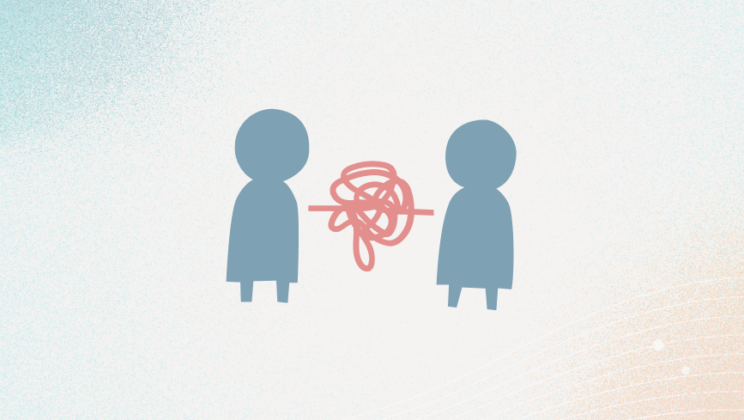Healing the Healer: Self-Care Practices for Mental Health Providers
March 22, 2022
A few days ago, I was discussing self-care with one of my coaching clients. The client shared that establishing a self-care routine was proving challenging because “it feels selfish.”
Like my client, I also struggled with self-care at a certain time in my life. I wanted to be a successful Afro-Arab immigrant, but the formula I created for being successful in the United States was deeply flawed, and shaped by systemic oppression–for example, there were situations where my professional competency was questioned because I received my education outside of the USA or because English is not my first language. With that in mind, I put so much pressure on myself to advance in my career, and I treated self-care as an occasional luxury rather than a necessity.
As a mental health coach who focuses on issues faced by people in the Black, Indigenous and people of color (BIPOC) community, I am in the business of caring for and supporting others. In order for me and my fellow mental health coaches to best serve our clients and shoulder their struggles, it’s important that we practice what we preach. We need to take care of ourselves and not just occasionally–it has to be consistent and multidimensional.
Dimensions of self-care
There are four key dimensions of self-care that need to be nurtured regularly: physical, emotional, psychological and spiritual.
Physical self-care
Physical self-care includes everything we do to maintain the wellbeing of our physical body like drinking water, eating foods that nourish and bring joy and being active in whatever way is available to us.
Emotional self-care
There are many ways to tend to your emotional health including receiving and giving love and kindness, nurturing your relationship with yourself and others and maintaining healthy emotional boundaries.
Psychological self-care
Psychological self-care is focused on engaging the mind and fostering developmental growth. This can come in the form of learning new skills, increasing your awareness and understanding of social or political issues or anything that challenges you in a healthy way.
Spiritual self-care
Spiritual self-care includes activities that give us a sense of meaning and purpose. Prayer, mindfulness and spending time in nature are all ways that you can enhance your sense of purpose and meaning. Actively cultivating gratitude for yourself, others and the good things in your life is another way to practice spiritual self-care.
Fostering a healthy balance within the coach community
Self-care is more powerful and accessible when it exists within a working environment that promotes employee wellbeing. For that reason, Lyra’s mental health coaches exist within a community of mutual care and emotional support. All Lyra coaches join a cohort of peers that meets biweekly with the purpose of creating the space for coaches to give and receive professional support.
Some ways that Lyra coaches support one another’s balance of work and self-care include:
Case consultation
Working as a coach can be isolating and emotionally challenging at times. Consult groups reinforce the reminder that, in this community you are not alone. All coaches come with different specializations as well as professional and life experiences, creating a diversity of skills, knowledge and perspectives. Lyra coaches provide one another with consultation on challenging cases as well as the opportunity to receive validation and emotional support.
Foundation of Safety and Accountability
The coaching cohort supports psychological self-care by establishing a safe place to share both personal and professional successes, challenges and opportunities. As a group, coaches create community agreements - a set of standards and expectations for the cohort to uphold - which are a foundational aspect of the cohort that foster safety and accountability. This framework creates connection to our shared human experiences and cultivates a sense of togetherness while also promoting personal and professional growth.
Centering
Between managing client cases, learning and development and other responsibilities in and outside of work, coaches have a lot to manage. To reinforce a priority of spiritual self-care, cohort meetings often begin with a mindful awareness exercise which creates an intentional space to ground into the present moment together and as a bonus gives coaches an opportunity to lead the group and share new practices with their peers before bringing them to client sessions.
Putting in to practice
It’s sometimes hard to know how to practice self-care, especially when you have a busy case-load.
It’s important to remember that self-care is not selfish. We have a finite amount of mental, physical and emotional energy, and as mental health coaches, helping people deal with their struggles can be draining.
For BIPOC mental health coaches, making space for renewal and recovery is extremely important– especially during this time. Self-care is the pathway to better engagement, presence and compassion. It’s giving yourself the space and tools you need to heal yourself so you can help others heal as well.
Here are a few tips from fellow coaches on how to bring more self-care into your day:
- Establish a grounding ritual to support your transition between clients
- Commit to regular movement or exercise
- Connect with your support systems
- Create an intentional workspace
- Strategically schedule your day
- Practice self-compassion through meditation
CONTACT US:
Visit our Provider page to learn more about Lyra's methodology, impact, and current opportunities.
If you want help connecting with a coach or therapist, Lyra can assist you. You can get started today if Lyra is offered by your employer. Sign up now.
For employers who want to learn more about how Lyra addresses network adequacy and quality issues, download our white paper on quality or get in touch.
And check in frequently here or follow us on Facebook, LinkedIn, and Twitter for more insights into supporting employees’ mental health.
ABOUT THE AUTHOR:
Nada Othman is a certified associate mental health coach with a master’s degree in general leadership and a narrative coach core practitioner. Before working in coaching, she earned a degree in mass communication with a concentration in advertising and then worked in global advertising agencies in Dubai, United Arab Emirates. She moved to the United States nine years ago. She started her coaching career in higher education as an academic coach and then expanded her coaching practice to emotional wellness and leadership coaching.
Nada is passionate about coaching. Using evidence-based techniques, she partners with her clients in a thought-provoking and creative way. Her intention is to guide them in developing strategies that will help them go from where they are in life to where they want to be. Nada always seeks to support her clients through their transitions and challenges and is deeply committed to being present with them and helping them become their best selves.
Explore additional blogs

Mental health tips
A Guide for Setting Boundaries in Relationships

Mental health tips
Therapist Burnout: Signs, Causes, and Tips to Prevent it

Mental health tips